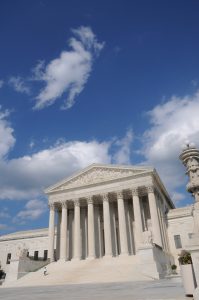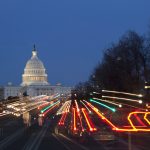By Adam Mossoff
 In an important decision handed down today, the Supreme Court explicitly recognized that patents are property secured by the Fifth Amendment Takings Clause. In Horne v. Department of Agriculture, the Court held that the Takings Clause imposes a “categorical duty” on the government to pay just compensation whether it takes personal or real property. Read more
In an important decision handed down today, the Supreme Court explicitly recognized that patents are property secured by the Fifth Amendment Takings Clause. In Horne v. Department of Agriculture, the Court held that the Takings Clause imposes a “categorical duty” on the government to pay just compensation whether it takes personal or real property. Read more


 In the last two weeks, the House and Senate Judiciary Committees marked up wide-ranging patent legislation ostensibly aimed at combating frivolous litigation by so-called “patent trolls.” But while the stated purpose of the House and Senate bills—H.R. 9 (the “
In the last two weeks, the House and Senate Judiciary Committees marked up wide-ranging patent legislation ostensibly aimed at combating frivolous litigation by so-called “patent trolls.” But while the stated purpose of the House and Senate bills—H.R. 9 (the “